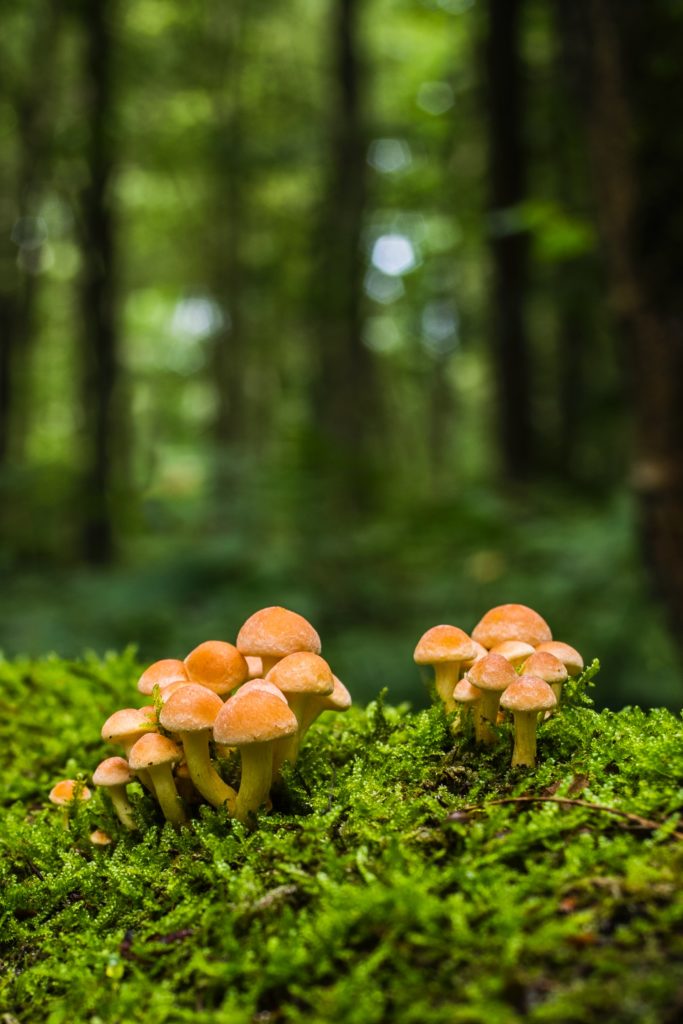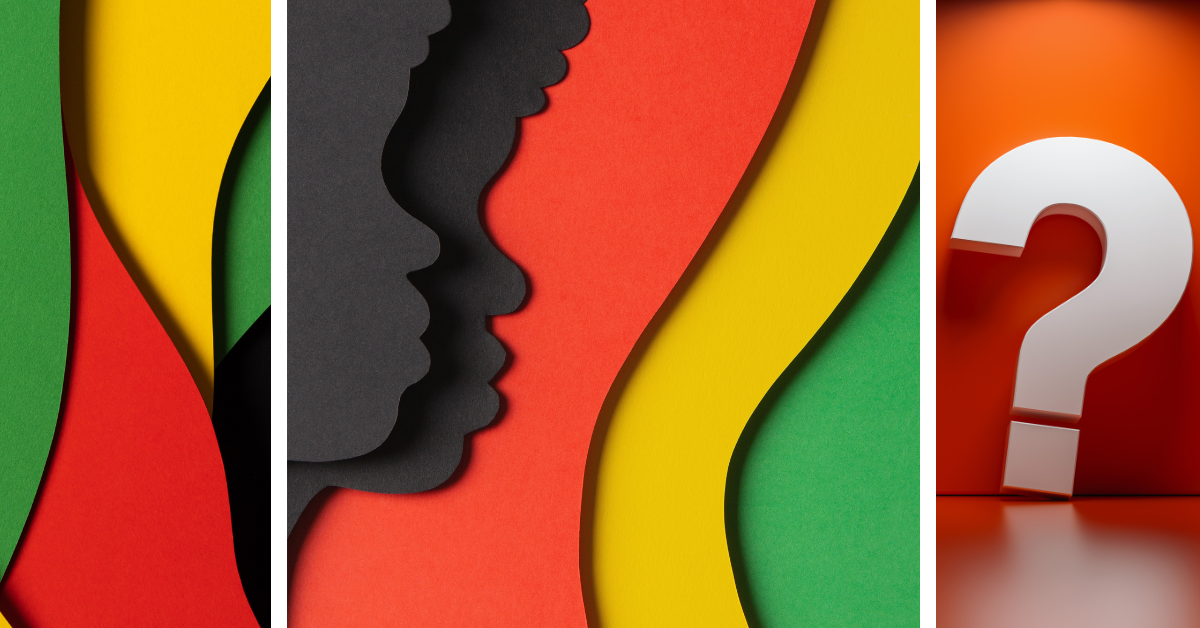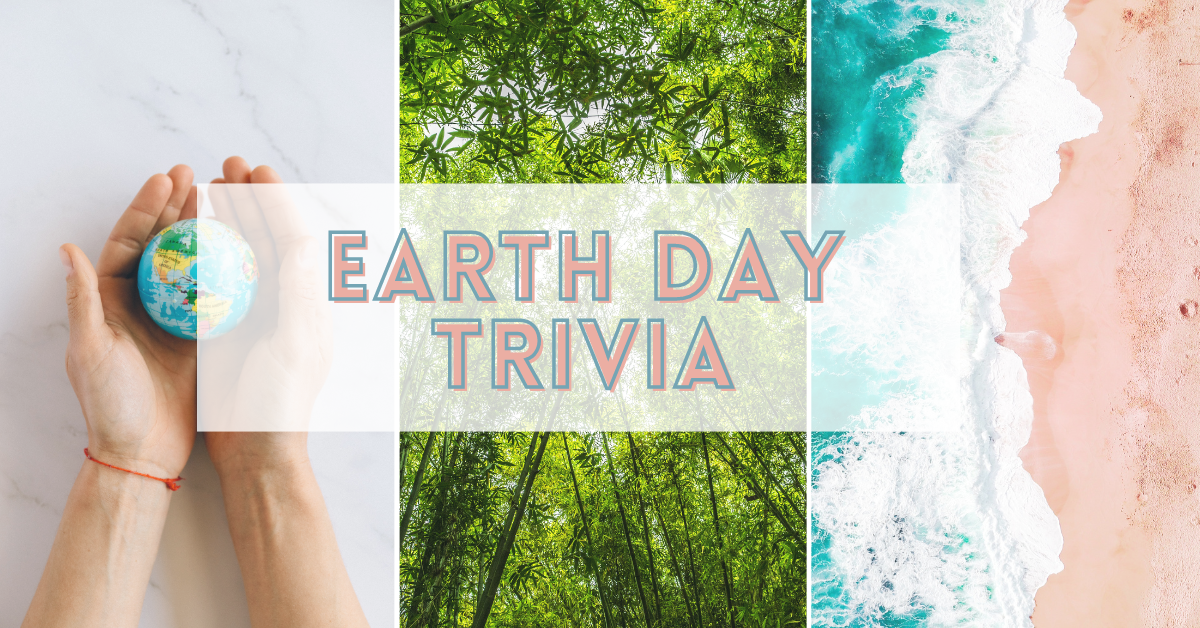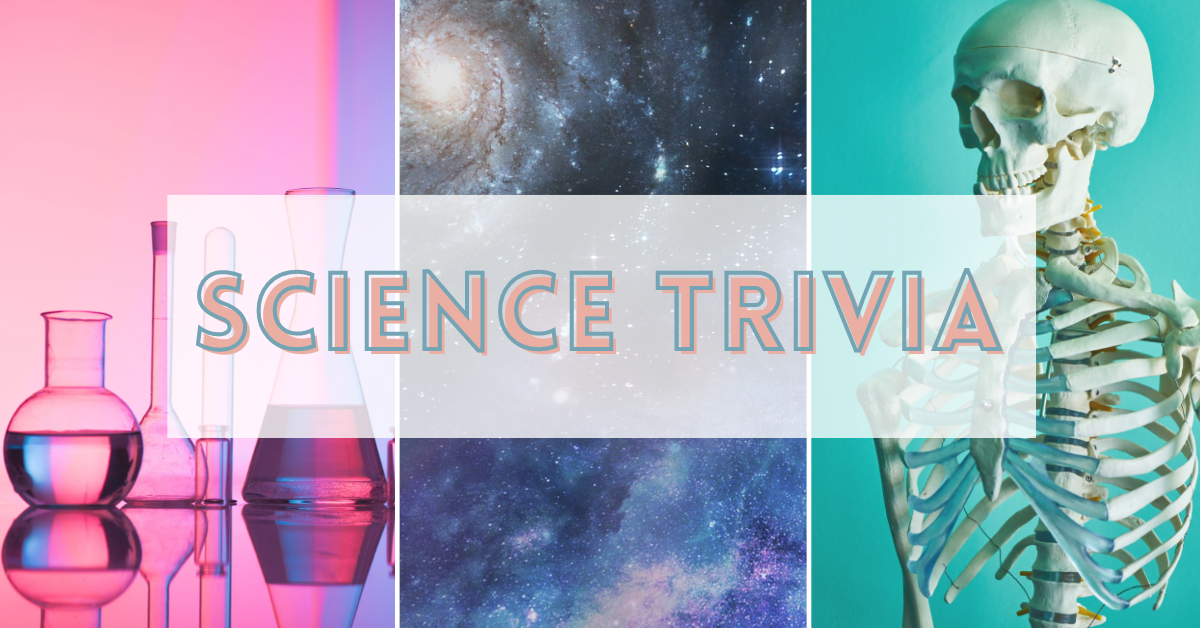Welcome to this week’s trivia quiz — featuring the best science trivia questions and answers we could think of!
This post is perfect for all the science lovers out there, especially if you’re interested in learning new facts. We’ve got a great collection of questions spanning from space and chemistry to biology and physics!
Are you ready to see how much you know about the physical world around you? Good luck!
* This post may contain affiliate links. You won’t be paying a cent more, but in the event of a sale, the small affiliate commission I receive will help keep this blog running/pumping out useful content. Thanks!
* This post may contain affiliate links. You won’t be paying a cent more, but in the event of a sale, the small affiliate commission I receive will help keep this blog running/pumping out useful content. Thanks!
161 Science Trivia Questions and Answers

Name the 5 human senses.
Answer: Taste, smell, touch, hearing, and sight.
Snow, rain, and sleet are all examples of what?
Answer: Precipitation.
In the USA, we refer to our space explorers as “astronauts”, a term that comes from the Greek words for “star” and “sailor”. Russian space explorers are called what (from the Greek for “universe” and “sailor”)?
Answer: Cosmonauts.
Which planet is closest to the sun?
Answer: Mercury.
Which one of these countries refers to their space explorers as not “astronauts”, but “taikonauts”? Is it China, Europe, Canada, or Japan?
Answer: China.
What resource covers most of the Earth?
Answer: Water.
What planet is closest in size to our moon?
Answer: Mercury.
What is the term for the species that can live on both water and land?
Answer: Amphibians.
What are the tissues called which connect bones to muscles?
Answer: Tendons.
What do you call a scientist who studies rocks?
Answer: Geologist.
What do you call a scientist who studies fossils?
Answer: Paleontologist.
What do you call a scientist who studies rocks?
Answer: Botanist.
During a storm, which comes first–seeing lightning or hearing thunder?
Answer: Lightning because light travels faster than sound.
Name the hardest known material on Earth?
Answer: Diamonds.
What are animals without a backbone called?
Answer: Invertebrates.
What is the food pipe in our body called?
Answer: Esophagus.
Which is the thinnest layer of the Earth? Is it the Inner core, Mantle, Crust, or Outer core?
Answer: Crust.
What is the boiling point of water in both Fahrenheit and Celsius?
Answer: 100 degrees Celsius, 212 degrees Fahrenheit.
True or false: The sun is the biggest star in the Universe.
Answer: False. While we’re still discovering new stars, UY Scuti is probably the biggest star ever observed, more than 1700 times the size of the sun.
You may also like: Space and Astronomy Trivia Questions To Test Your Space Smarts
Of all the different types of blood types, which is the rarest?
Answer: AB Negative.
Which is the basic unit of all life forms on this planet?
Answer: A cell.
What do you call animals that only eat plants?
Answer: Herbivores.
What do you call a person that only eats plants?
Answer: Vegetarian.
Which body parts continue to grow throughout your entire life?
Answer: Ears and nose.
What is the largest organ in the human body?
Answer: Skin.
If you needed braces, what kind of doctor would you visit?
Answer: An orthodontist.
What’s the heaviest organ in the human body?
Answer: Liver.
What element does the chemical symbol Au stand for?
Answer: Gold.
Mycology is the scientific study of what?
Answer: Fungi.

What animal is the closest living relative of a human?
Answer: Bonobos.
The first vaccine was for which disease?
Answer: Smallpox.
What is the hardest natural substance in the world?
Answer: Diamond.
Which of these is not the name of a space shuttle flown in this century–Enterprise, Atlantis, or Discovery?
Answer: Enterprise.
What space transportation company founded in 2002 by Elon Musk built Falcon 9, the first rocket completely developed in the 21st century?
Answer: SpaceX.
Which physicist published four breakthrough scientific papers in 1905, including his particle theory of light and his theory of relativity?
Answer: Albert Einstein.
In what creatures did scientists announce they had discovered how to reverse the aging process in 2013?
Answer: Mice.
What are erythrocytes another word for?
Answer: Red blood cells.
You may also like: 100+ Human Biology Trivia Questions To Celebrate Our Bodies
Also part of cow farts, what simple hydrocarbon, chemical formula CH4, is the primary component of natural gas?
Answer: Methane.
What scale is used to measure the size of earthquakes?
Answer: The Richter scale.
What large, unhatched fossilized objects were discovered at a construction site in China’s Guangdong Province in 2015?
Answer: Dinosaur eggs.
Can you name the well-known test that discovers whether a solution is acidic or basic?
Answer: Litmus test.
What does Ag stand for on the periodic table?
Answer: Silver.
What does Au stand for on the periodic table?
Answer: Gold.
Typically consisting of a stalk and an anther, what is the name given to the pollen-producing reproductive organ of a flower?
Answer: Stamen.
Which planet in the solar system is the hottest?
Answer: Venus.
What is the coldest planet in our solar system?
Answer: Neptune has the coldest overall average temperature and Uranus has the coldest temperature recorded.
The mandible bone is found in which part of the human body?
Answer: Skull; it holds the lower teeth in place and forms the lower jawline.
What project was finally completed in 2003, when scientists identified all human genes and determined the sequence of their DNA base pairs?
Answer: The Human Genome Project.
MRI is short for what radiology technique that uses scanners with strong magnetic fields to create anatomical images of the physiological processes of the body?
Answer: Magnetic Resonance Imaging.
What is the simplest hydrocarbon, consisting of one carbon atom and four hydrogen atoms?
Answer: Methane.
What is the scientific term for fingers and toes?
Answer: Phalanges.
By what process do plants use chlorophyll to make glucose, a food sugar?
Answer: Photosynthesis.
What name is given to water in the gaseous state?
Answer: Steam.
What substance in your ears helps keep germs and dirt out?
Answer: Earwax.
Animals that eat both plants and animals are known as what?
Answer: Omnivores.
What is the name of the blood vessels that carries blood back to the heart?
Answer: Veins.
Ibu, Advil, Motrin and Nurofen are different brand names for which drug?
Answer: Ibuprofen.
What disease used to be called consumption?
Answer: Tuberculosis.
What is the calm center part of a hurricane called?
Answer: The eye.
A healthy body functions best at an internal temperature of what?
Answer: About 37°C or 98.6°F.
What blood type do you need to be a universal donor?
Answer: O-.
Which finger on your hand has the fastest-growing nail?
Answer: The middle finger.
Piloerection is caused by contractions in small muscles that are connected to hair follicles. What’s a more common name for this?
Answer: Goosebumps.
The humerus bone is located in which part of the human body?
Answer: Arm.
Name the galaxy that contains the Solar System?
Answer: The Milky Way.

Which rare astronomical event occurs when a high-mass star reaches the end of its life?
Answer: A supernova.
In DNA, the four nucleotide bases are adenine, cytosine, guanine, and thymine; in RNA, what base replaces thymine?
Answer: Uracil.
Can you name the device which uses steam to sterilize equipment invented by Charles Chamberland in 1879?
Answer: Autoclave.
What does Cl stand for on the periodic table?
Answer: Chlorine.
Which science deals with the motion of projectiles?
Answer: Ballistics.
Which inventor was the decibel named after?
Answer: Alexander Graham Bell.
Graves’ disease affects which part of the body?
Answer: Thyroid.
In which part of the body is the lacrimal gland?
Answer: Eyes.
In which year did Neil Armstrong walk on the moon?
Answer: 1969.
What is the study of stars, planets and galaxies called?
Answer: Astronomy.
What animal’s cocoon is harvested to make silk thread?
Answer: Silkworm.
Where is the uvula located within the human body?
Answer: The throat.
About how many days does it take for the moon to pass through all phases?
Answer: 29.
The natural hallucinogen _____ is found in mushrooms.
Answer: Psilocybin.
Oncology focuses on what disease?
Answer: Cancer.
The sartorius muscle is located in which part of the human body?
Answer: Leg; it is the longest muscle in the body, spanning both the hip and the knee joints.
In 1610, who discovered the four largest moons of Jupiter using a telescope?
Answer: Galileo Galilei.
What geometric theorem allows for the calculation of the square of a hypotenuse of a triangle, by combining the squares of the two other sides? It gets its name from an ancient Greek philosopher.
Answer: Pythagorean Theorem.
At which temperature does water boil on the Fahrenheit scale?
Answer: 212 degrees F.
What are the small bones that make up a backbone called?
Answer: Vertebrae.
In math, “pi” is equal to?
Answer: 3.141592654.
What is the unit that measures force?
Answer: Newton.
Alexander Fleming won the Nobel Prize for the discovery of what?
Answer: Penicillin.

How does a solar eclipse happen?
Answer: A solar eclipse occurs when the moon gets between Earth and the sun, and the moon casts a shadow over Earth.
The last row of the periodic table signifies what type of elements?
Answer: Noble gases.
What is the only rock that floats in water?
Answer: Pumice.
In molecular biology, what term refers to the structure formed by double-stranded molecules of nucleic acids such as DNA?
Answer: Double helix.
What element on the periodic table is the sun mostly made up of?
Answer: Hydrogen.
If you throw a ball in the air, what curve does it trace out?
Answer: Parabola.
What is the biggest artery in the human body?
Answer: The aorta.
What makes up most of the dust particles found in a house?
Answer: Dead skin.
Sailors of the past suffered from scurvy due to a lack of what?
Answer: Vitamin C.
What is the chemical formula for table salt?
Answer: NaCl.
What scientific instrument measures air pressure in units known as ‘atmospheres?’
Answer: Barometer.
What name is given to a substance with no active therapeutic effect that is given in order to deceive the recipient into thinking that it is an active treatment?
Answer: Placebo.
Enzymes are composed of what organic molecule?
Answer: Proteins.
Fish take in oxygen through their gills; what do insects take in oxygen through?
Answer: Spiracles.
What grows from an acorn?
Answer: Oak Tree.
What type of scientist studies microscopic plants and animals?
Answer: Microbiologist.
What is the name of the sugary substance that many insects get from flowers?
Answer: Nectar.
Which organ in the human body is the only one that can float in water?
Answer: Lungs.
Which is the largest planet in the Solar system?
Answer: Jupiter.
What must a meteor do in order to become a meteorite?
Answer: It needs to hit the earth’s surface.
Which person is known for publishing “The Interpretation of Dreams”?
Answer: Sigmund Freud.
A human red blood cell has how many parts of hemoglobin?
Answer: Four.
A phytotoxin is a poison produced from what?
Answer: Plants.
On which planet did the Curiosity rover surprise NASA by discovering an Earth-like igneous rock in 2012?
Answer: Mars.
This phenomenon is believed to be caused by a memory mismatch, where a new experience is stored in long-term memory and completely bypasses short-term memory. In this scenario, you have a weird sensation that you’ve been through an experience before. What is this experience?
Answer: Déjà vu.
The word for an upright-walking primate is what?
Answer: Hominid.
What process produces a duplicate of the original cell?
Answer: Mitosis.

There are both the Northern Lights and the Southern Lights. What are their scientific names?
Answer: Northern Lights are called Aurora Borealis; Southern Lights are called Aurora Australis.
About how long is the human small intestine?
Answer: 18 feet.
Around the age of 6, the first set of molars comes in. When a person reaches 12, another set appears. The wisdom teeth are the final set of molars that typically appear between what ages?
Answer: Ages 18 and 21.
_____ are the tallest beings in the world. Hint: It’s not an animal.
Answer: Coast redwood trees ((Sequoia sempervirens).
In the fall, deciduous trees change color, but ____ trees don’t.
Answer: Coniferous.
What percent of the U.S.’s old-growth redwoods have been cut down since the 1850s–30%, 50%, 80%, or 95%?
Answer: 95%.
What is the name of a change of state of water from liquid to vapor?
Answer: Evaporation.
What part of the brain controls hunger?
Answer: Hypothalamus.
The adult human body has 206 bones — how many bones are babies born with?
Answer: Closer to 300. Many of a newborn’s bones are actually made of cartilage, which is much more malleable and allows fetuses to curl inside the womb as they develop. As children grow, cartilage turns into bone in a process called ossification, and the excess bones fuse together.
How many bones are in the human foot–is it 10, 15, 18, or 26?
Answer: 26.
True or false: Humans and giraffes have the same number of neck bones.
Answer: True. The key difference is that giraffes’ vertebrae are much longer than human vertebrae. We have the same number of neck bones for the simple reason that we’re both mammals.
In what body part does digestion begin — the mouth, esophagus, stomach, or small intestine?
Answer: The mouth. The digestive process starts in your mouth when you chew. Your salivary glands make saliva, a digestive juice, which moistens food and helps it down the digestive tract.
What is the name of the blood vessels that carries blood back to the heart?
Answer: Veins.
What’s the positively charged particle in the nucleus of an atom called?
Answer: A proton.
What time period is sandwiched between the Cretaceous and Triassic?
Answer: The Jurassic.
What method of underwater detection is short for “sound navigation and ranging”?
Answer: Sonar.
What three terms are represented in Newton’s second law of motion F = ma?
Answer: Force, mass, and acceleration.
What sticky sweetener was traditionally used as an antiseptic ointment for cuts and burns?
Answer: Honey.
What’s the itchy skin condition tinea pedis better known as?
Answer: Athlete’s foot.
What weather phenomenon is measured by the Beaufort scale?
Answer: The wind.
What prevents the earth’s atmosphere from drifting away into space?
Answer: Gravity.
What is the chemical formula for ozone?
Answer: O3.
What is the most commonly diagnosed cancer in men?
Answer: Prostate cancer.
What is the outermost layer of the eye called?
Answer: The sclera.

What is the world’s largest active volcano?
Answer: Mauna Loa.
In what month is the Earth closest to the sun?
Answer: January.
What is the innermost layer of the Earth called?
Answer: Inner core.
What is the outermost layer of the Earth called?
Answer: Crust.
What is “Newton’s Law?”
Answer: For every action, there is an equal and opposite reaction.
What’s the smallest bone in the human body?
Answer: Stapes bone in the inner ear.
About how fast does the speed of sound travel?
Answer: 767 miles per hour.
What is the measurement of energy in food called?
Answer: Calories.
True or false: Space is completely silent.
Answer: True.
What is the most abundant element in the universe?
Answer: Hydrogen.
Why is Mars red?
Answer: Because its surface contains iron oxide.
What does a pap smear test for?
Answer: Cervical cancer.
Do endurance athletes typically have higher or lower resting heart rates?
Answer: Lower. Their heart rates can be as low as 30 to 40 beats per minute. It is likely because exercise strengthens the heart and allows the heart to pump a greater amount of blood with each heartbeat.
If a person has failing kidneys, it is very likely they would be receiving what type of treatment?
Answer: Dialysis. It utilizes a dialysis machine to help filter the blood of toxins and wastes.
What are the names of the two muscular pipes located within the neck?
Answer: Esophagus and trachea. The esophagus leads to the stomach and the trachea leads to the lungs.
What is the name of the autoimmune condition in which a person experiences hair loss on the scalp or other parts of the body?
Answer: Alopecia.
On an acid-base scale from 0 to 14, what is the pH of water?
Answer: 7. Water is considered neutral on the pH scale.
What was the most popular form of cosmetic surgery performed in the USA in 2013?
Answer: Liposuction; over 360,000 procedures were performed.
What does a Geiger counter measure?
Answer: Radiation.
Arachibutyrophobia is the feat of what sticking to the roof of your mouth?
Answer: Peanut butter.
The name of which African animal means “river horse”?
Answer: Hippopotamus.
What is the only type of animal that has the ability to live forever?
Answer: The jellyfish Turritopsis dohrnii is the only species that’s been called biologically immortal.
Best Trivia Games of 2024
Can’t get enough of the trivia goodness? Neither can we. If you’re looking for trivia games to play with friends/family, here are our favorite trivia board games on the market this year!

Ultimate Pub Trivia
1,100 questions covering 6 different categories
Host your own pub-style trivia nights
4 or more players | Ages 12 and up

Anomia Party Edition
A very popular card game for families, teens and adults!
Fast-paced friendly competition and laugh-til-you cry kind of fun
3-6 players | Ages 10+

…I should have known that! Trivia Game
110 cards with 400+ questions
Instead of points for answering questions right, points are subtracted for every wrong answer
Players 2+ | Ages 14+
Thanks for stopping by, we hope you enjoyed our science trivia questions and answers! Feel free to share this post with any other friends/family that you think would also have fun going through these.
If you enjoyed reading this article, check out some of our other trivia topics and quizzes:

Disney Pixar Trivia: 50 Questions To Test Your Love For The Films
ou’ve sobbed through Up’s opening montage, screamed “SILENZIO, BRUNO!” into the void, and maybe—maybe—even forgiven Pixar for that twist in Inside Out 2 (we see … Read more

50 Kid’s Trivia Questions All About Disney Pixar’s Cars
Know a kid out there who’s absolutely obsessed with the Disney Pixar’s Cars franchise? We personally know a couple of … Read more

Celebrating Heritage: 45 Black History Month Trivia Questions
As Black History Month unfolds, we invite you to learn something new with our Black History Month trivia. We will … Read more

Movie Mega Quiz: 200 Trivia Questions All About Movies!
Lights, camera, action! Calling all movie buffs and avid film enthusiasts – get ready to embark on an exhilarating journey … Read more

105 Greek Mythology Trivia Questions That Even The Gods Would Love
Hello, dear trivia lover (or fanatic)! Are you a fan of Greek mythology and its fascinating stories of gods, heroes, … Read more

UK Trivia Quiz: All About London, England, and The Rest Of The UK
Are you a know-it-all of all things England and the United Kingdom? Do you know your Big Ben from your … Read more

200 TV Show Trivia Questions For True TV Fanatics
TV has become a staple in the home. We’ll be the first to admit–we are all guilty of binge-watching something … Read more

70 Earth Day Trivia Questions To Help You Celebrate Our Planet
Earth Day is an important time to take a moment and celebrate the planet we call home. Every year on … Read more

120 Christmas Trivia Questions and Answers (Free Printable)
Are you ready to jingle all the way into the holiday season with some festive fun? Christmas is the perfect … Read more

165 Fun and Totally Random Trivia Questions To Leave You Stumped
Do you like learning new, random facts that you’ll probably never need to know in your life? Or maybe you’re … Read more
If you enjoyed reading this article, check out some of our other trivia topics and quizzes:

Disney Pixar Trivia: 50 Questions To Test Your Love For The Films
ou’ve sobbed through Up’s opening montage, screamed “SILENZIO, BRUNO!” into the void, and maybe—maybe—even forgiven Pixar for that twist in Inside Out 2 (we see … Read more

50 Kid’s Trivia Questions All About Disney Pixar’s Cars
Know a kid out there who’s absolutely obsessed with the Disney Pixar’s Cars franchise? We personally know a couple of … Read more

Celebrating Heritage: 45 Black History Month Trivia Questions
As Black History Month unfolds, we invite you to learn something new with our Black History Month trivia. We will … Read more

Movie Mega Quiz: 200 Trivia Questions All About Movies!
Lights, camera, action! Calling all movie buffs and avid film enthusiasts – get ready to embark on an exhilarating journey … Read more

105 Greek Mythology Trivia Questions That Even The Gods Would Love
Hello, dear trivia lover (or fanatic)! Are you a fan of Greek mythology and its fascinating stories of gods, heroes, … Read more

UK Trivia Quiz: All About London, England, and The Rest Of The UK
Are you a know-it-all of all things England and the United Kingdom? Do you know your Big Ben from your … Read more

200 TV Show Trivia Questions For True TV Fanatics
TV has become a staple in the home. We’ll be the first to admit–we are all guilty of binge-watching something … Read more

70 Earth Day Trivia Questions To Help You Celebrate Our Planet
Earth Day is an important time to take a moment and celebrate the planet we call home. Every year on … Read more

120 Christmas Trivia Questions and Answers (Free Printable)
Are you ready to jingle all the way into the holiday season with some festive fun? Christmas is the perfect … Read more

165 Fun and Totally Random Trivia Questions To Leave You Stumped
Do you like learning new, random facts that you’ll probably never need to know in your life? Or maybe you’re … Read more


